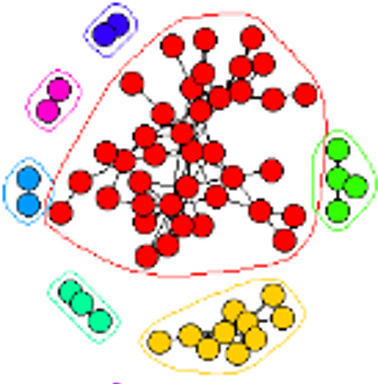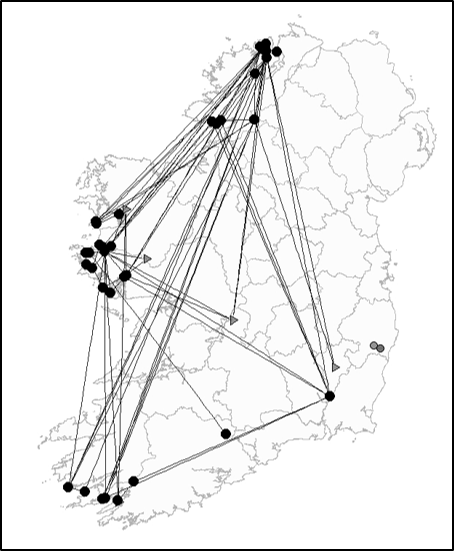Organic Salmon farming industry in Ireland:

Salmon farming has been carried out in Ireland for more than 30 years and is a significant contributor to the Irish economy, particularly along disadvantaged areas of the western seaboard. Since 2009 more than 65% of Irish farmed salmon has been sold as certified Organic (in 2012 was over 80%) and, as a consequence, sales prices have been relatively high and stable. Considering Ireland’s relatively low production and the potential growth of its market, because of its 
 condition as an organic farmed salmon producer and the growing interest in this kind of niche products, there are projects being considered for increasing national salmon production output. One of the most prominent is the construction of two salmon farms in the Aran islands at Co. Galway, developed by the Irish sea fisheries state agency, which is expected to double Irelands farmed salmon production. Currently, Ireland imports a relatively low amount of live salmon (fertilized eggs) for domestic production; however, assuming this and other growing farming projects are approved, live salmon imports could increase substantially, which might in turn increase the risk for importing disease agents exotic to Irelands industry, such as infectious salmon anemia (ISA) and heart and This multi-institutional project aims to assess the risk for introduction and spread of pathogens in the Irish salmon farming industry, considering the specific imports and trade contact structure and the management and biosecurity measures implemented on farm. All of this will be evaluated in the context of the current productive and sanitary situation of Ireland’s salmon farming industry and the prospects for its growth. Outputs will provide valuable information to stakeholders for a better prevention and control of diseases that may impact not only the salmon industry, but the entire economy of the country.
condition as an organic farmed salmon producer and the growing interest in this kind of niche products, there are projects being considered for increasing national salmon production output. One of the most prominent is the construction of two salmon farms in the Aran islands at Co. Galway, developed by the Irish sea fisheries state agency, which is expected to double Irelands farmed salmon production. Currently, Ireland imports a relatively low amount of live salmon (fertilized eggs) for domestic production; however, assuming this and other growing farming projects are approved, live salmon imports could increase substantially, which might in turn increase the risk for importing disease agents exotic to Irelands industry, such as infectious salmon anemia (ISA) and heart and This multi-institutional project aims to assess the risk for introduction and spread of pathogens in the Irish salmon farming industry, considering the specific imports and trade contact structure and the management and biosecurity measures implemented on farm. All of this will be evaluated in the context of the current productive and sanitary situation of Ireland’s salmon farming industry and the prospects for its growth. Outputs will provide valuable information to stakeholders for a better prevention and control of diseases that may impact not only the salmon industry, but the entire economy of the country.
